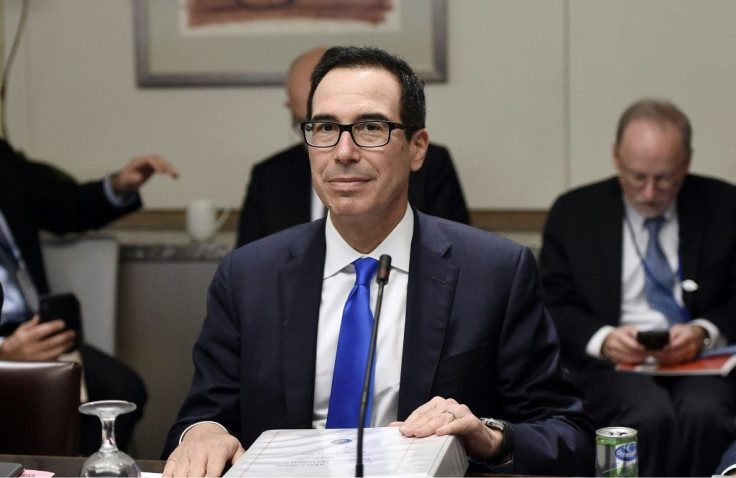At IMF, US Urges Action To Spur Global Economy; Avoids Talk Of Trade War

Washington called Friday for action from other major world powers to spur economic growth, avoiding mention of the US-China trade war and blaming the current global slowdown on excess savings, flagging investment in China and Europe in particular.
In a statement at the conclusion of annual meetings by the World Bank and International Monetary Fund, US Treasury Secretary Steven Mnuchin said the US economy stands out on the world stage and is primed for faster growth thanks to the tax cuts and regulatory reforms championed by President Donald Trump.
Mnuchin's remarks ran counter to urgent warnings this week from the IMF, which said the US-China trade war would shave 0.8 percent from the world economy next year alone and was eating into business investment in the United States.
While the IMF has likewise called for greater stimulus, it also downgraded its global economic forecasts for the fourth straight quarter, citing Trump's trade wars as a principal cause of weakness.
According to Mnuchin, if world governments take no action, the slowdown in China, Germany and Europe "could prove longer or deeper than initially envisioned."
He said there was "ample space for tax cuts and other fiscal measures" to spur a rebound in economic activity.
"Moreover, weak demand and subdued real interest rates across the global economy are symptoms of the substantial excess saving that is not being productively employed within the domestic economies of China, Germany, the Netherlands and other major economies," Mnuchin said.
China on Friday reported its slowest GDP growth in 27 years.
While the United States has outshined other industrialized economies this year, there are increasing signs that Trump's trade wars have wounded American industries, with manufacturing and agriculture badly damaged, exports weakening and investments by businesses sharply curtailed.
Policymakers at the Federal Reserve believe they have raised the chances of a recession and could slow job growth, thereby eating into consumer spending and weighing on economic expansion, currently on its longest streak in US history.
© Copyright AFP 2024. All rights reserved.





















